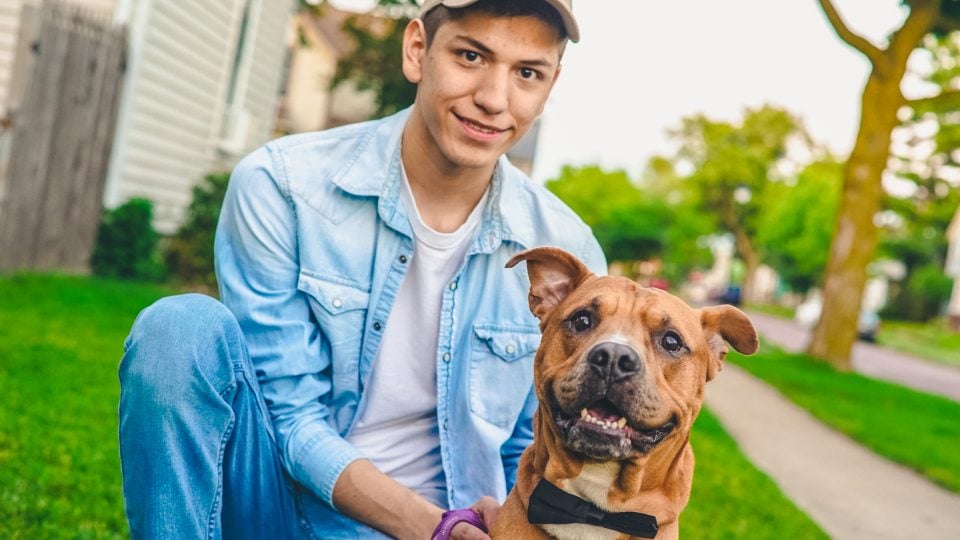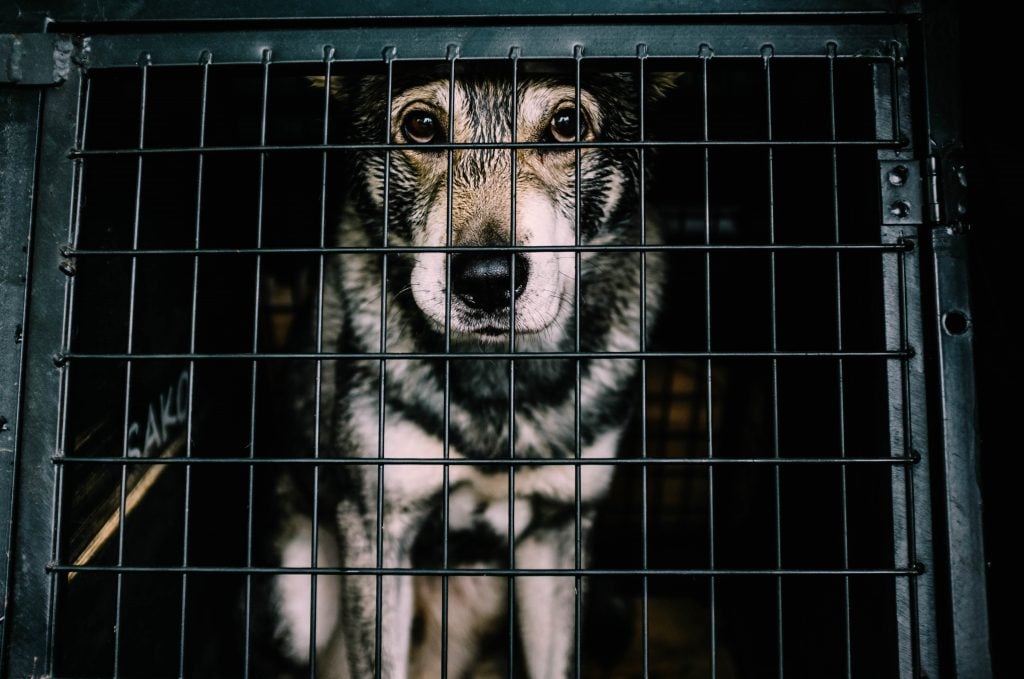Are you endlessly scrolling #shelterpetsofinstagram and #dogadoption? Have you dreamily imagined morning walks with a new best friend and low-key stalked dog parks? You may be ready, as they say in animal rescue circles, to provide a forever home to a dog in need.
Maybe you’ve already read our post covering signs that you’re ready to bring a dog home. But let’s go over some basic prerequisites, preparations, and strategies for finding a great human/dog match.
The Surprising Cost of Adopting a Dog
tFirst, the least fun consideration for bringing a dog home: money. According to Rover’s recent research, the cost of getting a dog can vary wildly and should be considered against your available financial resources. That said, Rover’s Cost of Pet Parenthood Survey shows that adopting a dog can cost you between $100-700 for the adoption fees alone, depending on your dog’s size and breed. Then making sure your new dog is healthy and happy in the first year can cost you anywhere from $1,050 to $4,480.
This number is lower than my real life experience. My family adopted a two-year-old pit bull in 2016. The first year, her expenses were about $5,000 per year, and the second year, $4,000. She has skin allergies and an alarming tendency to ingest anything, which means regular trips to the vet and regular medication costs. She’s worth every penny, even if it’s sometimes difficult to come by those pennies.
In addition, shelters and rescues will have a one-time adoption fee, up to a few hundred dollars. The exact use of adoption fee can be explained by the individual organization, but it may cover costs of food, pet health care, the overhead for running the program, and spaying or neutering—nearly all rescue animals are spayed or neutered to control populations and keep animals out of kill shelters.
You’ll Need to Adjust Your Lifestyle
If you’re planning to bring a dog home for the first time ever, congratulations! Or if it’s been awhile, here are a few reminders.
You’ll want to consider the time commitment a new pet takes and a whole lot of other lifestyle adjustments. Going away for the weekend? You may need a dog sitter or a boarding service. (Hot tip: we’ve got you covered!) Like to sleep in? Your dog may become your new early morning alarm. Work for long hours outside of the home? Your dog’s bladder and/or need for attention may not comply with your work demands.
And if you don’t already have one, you may want to consider getting a really good vacuum cleaner.
Finding the Right Dog-Human Fit
When considering the type of dog you want to rescue, it may be helpful to know the most common dog breeds found in shelters, which are widely reported to be pit bulls and Chihuahuas.
When it comes down finding a good rescue match, it’s important to consider your expectations and the dog’s individual needs. You may want a running partner. The dog may need a lot of social interaction. Maybe you can’t offer a lot of yard space. The dog may not do well with young kids or cats.
Often, there’s good information about breed-specific adoptions, such as if you are considering a greyhound. Look into this information if you’re considering a particular breed.
Age Is a Consideration
Age of the dog may be one of the most significant considerations when seeking out your perfect rescue. Depending on the dog’s breed and health, get ready for commitment! Dogs can live for fifteen to twenty years.
While puppies are all kinds of fun and adorable, they also require a lot of training as well as willingness to lose a shoe, cushion, or favorite heirloom to those developing puppy teeth, not to mention the lost sleep of managing all that energy.
Because puppies are the easiest age of dog to find homes for, if you can, consider an older dog. Even dogs as young as two years old are much more in need of adoption.
Consider Breeds with Extra Needs
Rescues and shelters exist because there are, sadly, too many unwanted animals in the world. The American Society for the Prevention of Cruelty to Animals says about 3.3 million dogs enter shelters every year in the U.S. alone, and the number of dogs without homes is growing, according to NPR.
As a future adopter, you are helping to free up a spot for another dog to be saved from the street or from a kill shelter. Yay!
Unfortunately, dogs can have a harder time finding a home due to breed perceptions, advanced age, and/or special medical needs. We can tell you all of the reasons we love pit bulls, but pit bull caregivers are often subject to stricter restrictions as renters, home insurance buyers, and even find their dog restricted from entire cities.
If you have some flexibility, why not consider taking in a breed with more restrictions?
Because they may have advanced health issues, or even just being less physically appealing, older dogs don’t get adopted as often as their more spry fellows. We can offer lots of reasons for giving your love, and a place in your home, to a senior dog.
What to Expect from the Animal Shelter or Rescue
There are a vast array of dog rescue organizations out there and finding the right place for your adoption experience will be important. There are breed-specific centers, rescues run out of homes by big-hearted volunteers, full-blown nonprofit organizations, and your local government-run shelters.
Rescuers may not know much about your potential pet. Some may have high adoption rates, with fast turnover and lower screening requirements, so they won’t know the pets in their care very well. Others may have extensive screening requirements, such as home visits, and spend time getting to know the needs and specifics of the dogs they are adopting out.
Select the organization you are comfortable with and that can provide the level of support you will need through the process of adoption. If you’re a renter, always expect the adopting organization to contact your landlord for proof that your lease agreement allows dogs.
You’re Ready! Go Get Your New Friend
When you arrive at the shelter, you will be offered a chance to meet with the dog or dogs you’re interested in. You may even be able to take them out on a short walk.
Keep in mind that dogs are generally not themselves in the shelter environment. If the dog has been in a foster home, you may be able to ask the foster family about the dog’s personality. Keeping an open mind when meeting dogs may lead to an exciting match—your perfect rescue dog may not be the dog you expected.
We can’t wait to see your new dog settled in with you at home. Please post a pic on our social media!






